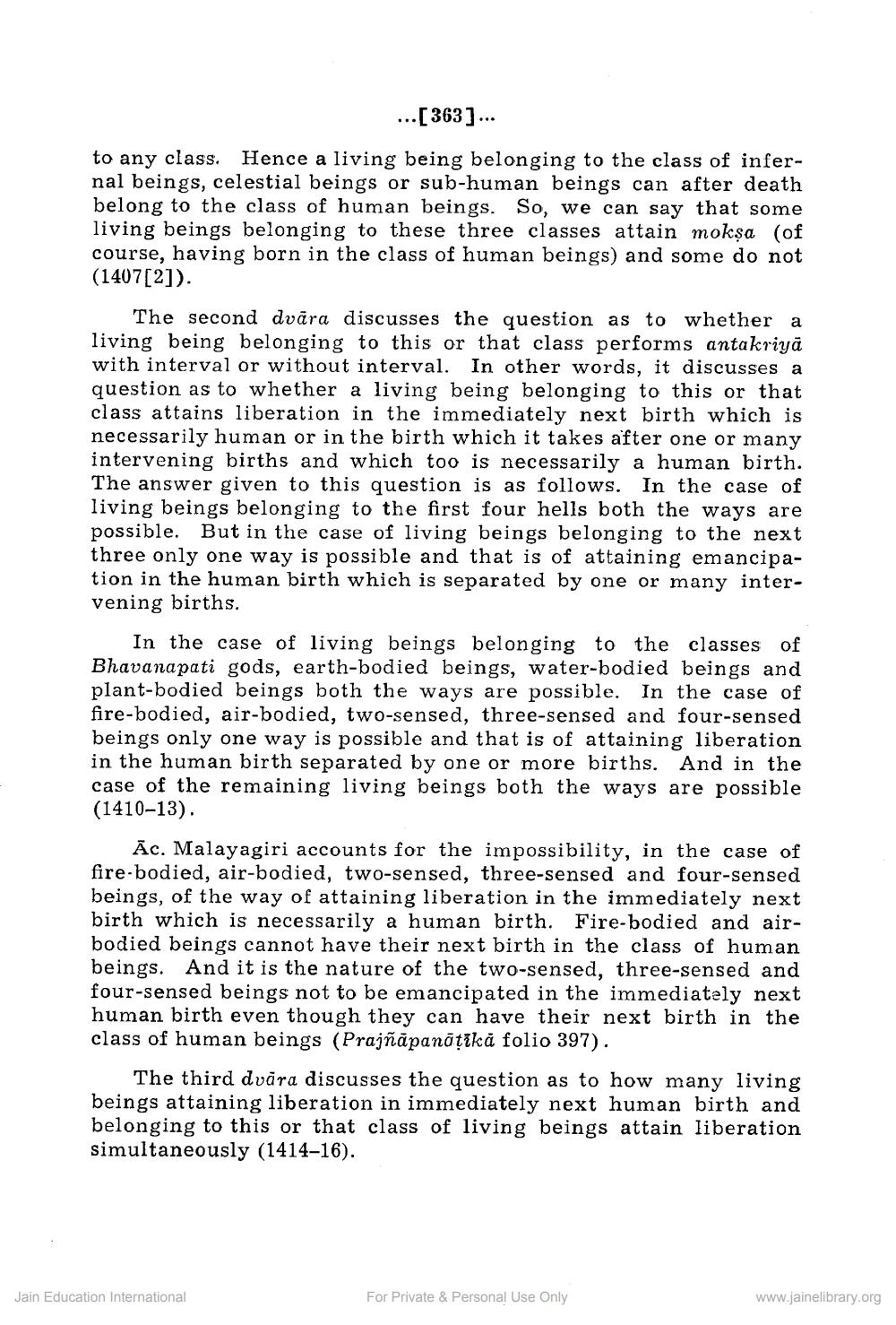________________
...[363] ...
to any class. Hence a living being belonging to the class of infernal beings, celestial beings or sub-human beings can after death belong to the class of human beings. So, we can say that some living beings belonging to these three classes attain mokṣa (of course, having born in the class of human beings) and some do not (1407[2]).
The second dvara discusses the question as to whether a living being belonging to this or that class performs antakriyā with interval or without interval. In other words, it discusses a question as to whether a living being belonging to this or that class attains liberation in the immediately next birth which is necessarily human or in the birth which it takes after one or many intervening births and which too is necessarily a human birth. The answer given to this question is as follows. In the case of living beings belonging to the first four hells both the ways are possible. But in the case of living beings belonging to the next three only one way is possible and that is of attaining emancipation in the human birth which is separated by one or many intervening births.
In the case of living beings belonging to the classes of Bhavanapati gods, earth-bodied beings, water-bodied beings and plant-bodied beings both the ways are possible. In the case of fire-bodied, air-bodied, two-sensed, three-sensed and four-sensed beings only one way is possible and that is of attaining liberation in the human birth separated by one or more births. And in the case of the remaining living beings both the ways are possible (1410-13).
Ac. Malayagiri accounts for the impossibility, in the case of fire-bodied, air-bodied, two-sensed, three-sensed and four-sensed beings, of the way of attaining liberation in the immediately next birth which is necessarily a human birth. Fire-bodied and airbodied beings cannot have their next birth in the class of human beings. And it is the nature of the two-sensed, three-sensed and four-sensed beings not to be emancipated in the immediately next human birth even though they can have their next birth in the class of human beings (Prajñāpanāṭika folio 397).
The third dvara discusses the question as to how many living beings attaining liberation in immediately next human birth and belonging to this or that class of living beings attain liberation simultaneously (1414-16).
Jain Education International
For Private & Personal Use Only
www.jainelibrary.org




